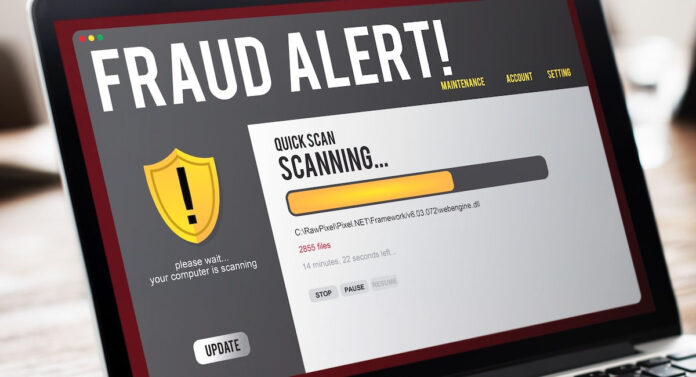As of this fall, the FTC’s Language Access Initiative will expand its services to include up to a dozen new languages
by Mark Hedin
The Federal Trade Commission has a new strategy for battling fraud. As of this fall, its Language Access Initiative provides interpreters who can take fraud reports and provide advice in many more languages than just English and Spanish.
At a Nov. 21 press briefing the federal agency hosted with Ethnic Media Services – simultaneously translated into Spanish, Korean and Mandarin – two FTC officials and a lawyer/journalist described how the new multilingual services work and some of the ways they’re expected to help protect consumers.
“We’ve long had the ability to hear from people in English and Spanish,” said Monica Vaca, deputy director in the FTC’s Bureau of Consumer Protection. “Getting reports from people in other languages has been a limitation for us.”
Vaca emphasized the importance of people making those reports not just for their own sake but to help the FTC get the word out before more people are scammed. “We can only bring cases and do education about scams that we know about,” she said.
Fraud toll nears $9 billion
Just based on the number of reports people made in English or Spanish, fraud and deceptive or unfair business practices cost U.S. consumers close to $9 billion last year, noted Larissa Bungo, senior attorney with the FTC’s Division of Consumer and Business Education.
People who are worried they have been victimized can reach out for FTC help either on the phone or online.
Doing so will alert the FTC’s Consumer Sentinel Network – a pool of 3,000 law enforcement officers at federal, state and local levels – to be on the lookout.
If the FTC can catch the culprits quickly enough there is the possibility of getting your money back – another reason to not hesitate if you think you’ve been cheated.
For example, the FTC was able to recover $245 million that it is returning to customers of Epic Games, creator of the popular game Fortnite, which the FTC alleged tricked young players into making unintentional purchases.
The deadline for filing a claim is Jan. 17 of 2024.
Don’t hesitate to report fraud
Of course, to get money back with FTC help, you have to identify yourself when making a report, but in any case, you will never be asked about your immigration status.
Sometimes, success in getting money back depends on how the victim was defrauded. For instance, if payments were made using a credit card, it may be possible to contest the charge with the card company.
So be careful. “Only scammers insist you pay by gift card, cryptocurrency or wire transfer,” Bungo advised.
Another reason to not delay reporting suspicions is that scammers often work from overseas where they and the money they obtained are harder for law enforcement to reach.
Even if you successfully dodge a scam, reporting the attempt helps inform and thus protect otherwise unsuspecting potential victims, Bungo said.
The multilingual call-center staff and information available at the agency’s website can also provide a range of “next steps” for people to consider.
By phone, call (877) 382-4357, then press 3. A succession of messages in different languages will tell you what number to press next to reach an in-person interpreter who knows your language.
Lines are open 9 a.m. to 5 p.m. EST, which is 6 a.m. to 2 p.m. on the West Coast.
New language choices available as of last month include Portuguese, French, Tagalog, Somali, Vietnamese, Arabic, Russian, Polish, Korean, Ukrainian, Hmong and Mandarin.
The FTC has the ability to find interpreters in almost 200 languages, as needs arise.
This multilingual reporting system can also be used to report identity theft situations. For those, call (877) 438-4338, then follow the same process of dialing 3 to access the various languages available.
You can make either fraud or identity theft reports online at ReportFraud.ftc.gov or IdentityTheft.gov or, in Spanish, ReporteFraude.ftc.gov and RobodeIdentidad.gov.
Those four web pages all have drop-down lists in a box labeled “languages” or “idiomas” that let users complete reports in dozens of other languages.
Bungo also described numerous resources the FTC provides at no cost for people to distribute within their communities, whether online or in print.
For instance, there’s a fraud handbook for recent immigrants and refugees and guidance for small business owners. There’s information about “four warning signs of a scam,” descriptions of common tricks such as fake invoices, business impersonation, bad business practices, phony job opportunities, phony online retailers and “phishing” links disguised to look like they’re from companies trying to make a delivery.
If asked, the agency will also print and ship these guides to community organizations, at no charge, Bungo said.
Information the ‘most powerful weapon’ against scammers
Lawyer and journalist Jongwon Lee described a scenario he witnessed and reported on in Atlanta’s Korean community, where a retiree lost tens of thousands to an investment scammer who gained his trust in part by being conversant in Korean.
Publicity about the case, a pyramid scheme that became known as Club Mega Planet, helped prosecutors uncover other victims in several states. Making law enforcement aware of additional cases increases the likelihood of criminals being arrested, and prompt reporting can help prevent the stolen money from being spent before it can be recovered.
“The FTC’s Language Access Initiative is historic,” Lee said. “It shows that government agencies are looking to do justice for immigrants like us. Language access gets rid of fear and shame and gives you confidence and encouragement that you are not alone and somebody is listening to you.”
“Information is the most powerful weapon against scammers. Get educated and informed.”



